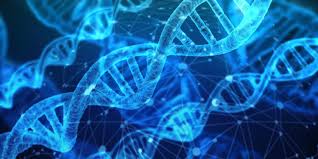Genetic Testing: PGD & PGS
Preimplantation Genetic Diagnosis (PGD) and Preimplantation Genetic Screening (PGS) are techniques whereby cells are removed from the embryo around day 3 or day 5 of its development. Genetic information is then extracted from these cells to assess genetic abnormalities in the embryos. This procedure is offered to patients who have a genetic condition or family history of genetic abnormalities that may be passed onto their baby or in patients with recurrent miscarriages.ntering the egg on its own. This type of fertility treatment is used mainly for male infertility, especially in low sperm count, poor morphology and testicular aspiration or biopsy.

What is PGS?
Optionally conducted as a part of IVF treatment, PGS tests embryos for abnormalities in chromosome count. Chromosomal abnormalities can lead to miscarriage or conditions such as Down's syndrome. If abnormalities are detected, a successive IVF cycle can be conducted and newly tested. PGS can also be utilized for those with family-balancing desires. With PGS, parents-to-be can trust in the health of their baby before implantation.
The steps of genetic testing (PGS/PGD)?
Both PGS and PGD genetic testing are conducted as a part of IVF treatment and include the following basic steps:
- Embryos are produced through IVF treatment.
- A small sample of cells is biopsied from each embryo.
- The cell sample is analyzed for any genetic or chromosomal abnormalities.
- Embryos that test negative for abnormalities are then transferred to the woman's uterus.
The process is harmless to the embryos, and you can rest assured that we utilize the latest technologies and best practices to ensure optimal results. Your comfort and education are very important to us, so we will discuss the exact procedure in detail during your consultation.
Comprehensive Chromosome Screening (CCS)
Comprehensive Chromosome Screening (CCS) is a method of selecting high-quality embryos for in vitro fertilization (IVF) that allows for higher implantation and pregnancy success rates than traditional screening. This state-of-the-art procedure enables embryologists to select the most viable embryos for transfer, so couples using IVF can expect an even higher chance of conception. While older methods of screening involved obtaining a biopsy of cells at an early embryo stage, CCS allows chromosomes to be tested at a later stage with nearly 99% accuracy. This leads to increased IVF success rates, fewer IVF cycles needed, and overall higher patient satisfaction.
